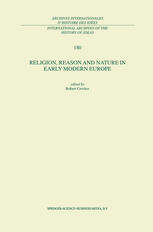

Most ebook files are in PDF format, so you can easily read them using various software such as Foxit Reader or directly on the Google Chrome browser.
Some ebook files are released by publishers in other formats such as .awz, .mobi, .epub, .fb2, etc. You may need to install specific software to read these formats on mobile/PC, such as Calibre.
Please read the tutorial at this link: https://ebookbell.com/faq
We offer FREE conversion to the popular formats you request; however, this may take some time. Therefore, right after payment, please email us, and we will try to provide the service as quickly as possible.
For some exceptional file formats or broken links (if any), please refrain from opening any disputes. Instead, email us first, and we will try to assist within a maximum of 6 hours.
EbookBell Team

4.8
44 reviewsFrom a variety of perspectives, the essays presented here explore the profound interdependence of natural philosophy and rational religion in the `long seventeenth century' that begins with the burning of Bruno in 1600 and ends with the Enlightenment in the early Eighteenth century. From the writings of Grotius on natural law and natural religion, and the speculative, libertin novels of Cyrano de Bergerac, to the better-known works of Descartes, Malebranche, Cudworth, Leibniz, Boyle, Spinoza, Newton, and Locke, an increasing emphasis was placed on the rational relationship between religious doctrine, natural law, and a personal divine providence. While evidence for this intrinsic relationship was to be located in different places - in the ideas already present in the mind, in the observations and experiments of the natural philosophers, and even in the history, present experience, and prophesied future of mankind - the result enabled and shaped the broader intellectual and scientific discourses of the Enlightenment.